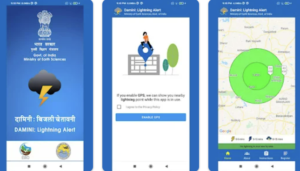In today’s world, fast and reliable mobile internet is more of a need than a luxury. Everyone wants smoother browsing, quicker downloads, and fewer buffering problems. But not everyone knows that small tricks can boost your internet experience without paying extra. These simple changes can make your mobile data feel faster and smarter. It’s like unlocking a hidden feature in your phone.
One useful trick is switching your mobile network from automatic to manual mode. Sometimes, phones stay connected to a weaker signal even when a stronger one is available. Manually selecting a better network can give you faster speeds. This is especially helpful when you’re in areas with low signal strength. A quick network refresh can make a big difference.
Clearing your browser and app cache regularly can also improve internet performance. Over time, stored data slows things down, even if the connection is strong. Clearing this junk helps your apps and websites load faster. It also frees up storage space, which indirectly helps your phone run better. This small step keeps things smooth and steady.
Using a lightweight browser like Opera Mini or Brave can also save data and speed up web pages. These browsers are designed to use fewer resources and compress content. That means even on a weak connection, things load faster. They also block ads by default, which makes the internet cleaner and quicker. It’s a smart way to stretch your mobile data.
Enabling data saver mode on your phone is another useful trick. It limits background data use and stops apps from consuming internet without your knowledge. Many apps keep using data even when you're not using them. Data saver settings put a stop to that. You only use internet when you actually need it.
Switching to a 5GHz Wi-Fi band when available is another great trick for faster speeds. Most phones automatically connect to 2.4GHz, which is more crowded. If your router supports 5GHz, changing manually gives you faster internet with less interference. This is a helpful tip when you're at home or using public Wi-Fi with slow speeds.
Some users install VPN apps thinking it will speed up their internet. While that's not always true, a good VPN can bypass traffic restrictions set by your provider. If your network slows down certain apps or sites, a VPN can restore full speed. But the key is to use a reliable and fast VPN. Free ones may actually slow things down more.
Another advanced trick is using DNS changer apps. These apps change how your phone connects to websites, sometimes speeding up the process. Switching to Google DNS or Cloudflare DNS can make loading websites quicker and more secure. It's a small tweak that works quietly in the background. Once set, you won’t even notice it’s there.
Keeping your phone’s software updated is often overlooked. Updates fix bugs and optimize how your phone uses network resources. An outdated phone may struggle to connect to modern websites and services. So regular updates are a simple way to keep your internet experience smooth. They also improve security, which is a bonus.
In the end, the ultimate mobile internet trick is not one single hack, but a combination of small habits. From managing background apps to choosing the right browser, each step adds up. You don’t need extra data or expensive plans to make your internet work better. Just a few smart choices can give you faster, cleaner, and more reliable browsing every day.
One more underrated trick is turning airplane mode on and off when your internet slows down. This forces your phone to reconnect to the nearest and strongest signal. It's like giving your network a fresh start without restarting the whole device. Many people notice improved speed immediately after doing this. It’s quick, easy, and surprisingly effective.
Limiting auto-updates and background syncs is another simple but powerful move. Apps like Google Photos, WhatsApp, or email clients keep syncing data in the background. This eats up bandwidth without you realizing it. Turning off auto-sync for non-essential apps keeps your internet free for what you’re actively doing. It makes your connection feel much faster.
Using apps in their lite versions is another way to save data and improve speed. Many popular apps like Facebook, Instagram, and YouTube have lite versions that use less data. These apps load faster and work better even on slow connections. They also consume less battery and storage. For many users, they’re a smart alternative without losing key features.
Sometimes, your slow internet isn’t the network — it’s your phone overheating. When the phone gets too hot, performance drops, including internet speed. Keeping your phone cool helps it run better in every way. Avoid using heavy apps for long hours, especially under sunlight. A cooler phone always means a more stable connection.
Restricting high-data apps like video streaming to Wi-Fi only is another good practice. Even when you’re using mobile data, background videos and auto-play ads can silently drain it. By adjusting settings in apps like YouTube and Instagram, you can control how much they load. This gives you more control and a smoother experience overall.
If you often face network issues indoors, consider using Wi-Fi calling or VoLTE. These services allow your phone to use internet instead of poor mobile signals to make calls. Not only are they clearer, but they also keep your internet speed from dropping during calls. It’s especially useful in areas with weak tower signals but strong Wi-Fi.
Changing your phone's preferred network type can also bring better results. If you're in an area with weak 4G but strong 3G, forcing your phone to switch can provide a more stable connection. It’s all about testing what works better in your location. Some areas perform better on a lower network with a stronger signal.
Another useful tip is to use one SIM card for data and the other just for calls, if you’re using a dual-SIM phone. Many phones slow down internet when calls come through on the data SIM. Keeping your data and calling separate can prevent interruptions. It also lets you choose the best network for each task.
Checking your phone for malware and unwanted apps is also important. Some hidden apps steal data in the background or keep your connection busy. Running a regular scan with a trusted antivirus app helps keep your phone clean. A healthy phone always offers better internet performance.
At the end of the day, smart usage is the real trick. Understanding which apps need data and which don’t, turning off what you don’t use, and keeping your device optimized — all these small choices make a big difference. You don’t always need faster data plans; you just need to manage your data smarter. That’s what turns regular users into power users.







